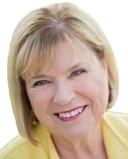Depression
Seasonal Affective Disorder: Tips to Overcome the Disorder
Four helpful ways to manage and take control of your SAD
Posted November 10, 2014
How convenient that the acronym for Seasonal Affective Disorder reflects the feeling people get as the dark crowds in on us. With daylight savings time accelerating the sensation, many of us get the feeling we should hunker down, make soup and bread, find ways to bring light into our lives using candles and fireplaces and we start feeling like we can hardly wait for spring already.
Seasonal Affective Disorder is much different though. It is not just "I hate the cold" crabbiness. Take the above description and multiply by 10. When people have an abnormal response to the shortened days, they feel depressed. They hunker down by not getting out of bed without tremendous motivation. They don't just decide to bake bread for its pleasant aroma, but they crave pasta, potatoes and sweets in preference to almost everything else. They need light - usually full spectrum, right in the face for a couple of hours - and this is just to feel okay in the face of fading light.
What is going on here? Your brain makes melatonin which it needs for adjusting your physical responses to light and dark. Even in this highly techno world, your brain still is reacting to natural light. Your eyes are the window into response to the rhythm of light and dark. When the world starts to darken into shorter days, if your brain is not manufacturing sufficient melatonin, getting drowsy and waking up becomes a challenge. Too drowsy and not energetic are the hallmarks of SAD. If you have a brain that does not make enough melatonin or that does not respond easily to the circadian rhythm you may have the biology that creates SAD.
The good news is that if you know this, you can make adjustments. Below are a couple of tips you might consider to help you take control and manage your SAD.
-
Get natural light
You are the person who should seriously take a vacation in the south during the dark months. You can tell your boss I recommended it! But in lieu of vacation, get outside for 30 minutes in the middle of the day and take a walk. It helps activate your brain and you will feel more energetic, not less, if you get outside. Natural light always trumps artificial light and even on a cloudy day you will get a fair amount of the right kind of light to wake up your brain. But getting a full spectrum light and using it daily can make a positive change in your mood and you can set it up at work or at home for your convenience.
-
Watch what you eat and take vitamins to enhance your mood
Seriously, don't give in to the heavy carb craving if you can. You will gain weight, which will make you more depressed. You are probably not needing to hang on to body weight to survive the cold as your DNA ancestors did. Additionally, the carbs don't help your brain build melatonin. Taking melatonin is not really what is necessary; rather the building blocks of brain neurotransmitters: Proteins, B vitamins in vegetables and taking vitamins or supplements like Omega-3 or SAMe might be good choices.
-
Exercise- get out and be social!
Even though the weather is not its best, don't give up on exercise. This is the time of year to get as much as you can. Exercise is probably the single best anti-depressant I can think of. Try being creative about it though: dance, play a running game with a child, join a walk-in-the-mall group for social exercise. Adding the pleasure of sociability to the exercise will boost your mood with smiles and the joy of human contact - even if your SAD makes you feel like other people are a bother.
-
Consider medication
If all this fails, don't hesitate to consider medication. Some of the SSRIs have shown to improve SAD considerably. Taking medication even when you would prefer to avoid it is better than suffering through this serious seasonal malady.
The biggest curse of SAD is the way it robs you of joy in daily life and robs you of motivation to take part during this time of year when people want to celebrate with each other. Regardless of your religious conviction, starting with preparation for Thanksgiving and culminating with New Year's parties, parades and football, there are a lot of opportunities to feel like you are the odd one out with your unhappiness. This year, don't wait to see if it gets bad. Taking care of SAD as soon as you suspect you feel it may keep you more prepared to participate and thus put into effect a self-reinforcing circle of participation-feeling better-more participation that by itself will help reverse SAD.


